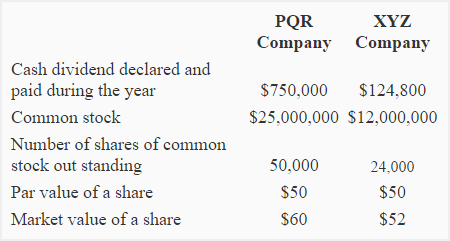
Another disadvantage of the accrual method is that it can be more complicated to use since it’s necessary to account for items like unearned revenue and prepaid expenses. You’d record both the expenses and the income in June to line up with when you completed the project and income was earned — even though you weren’t actually paid until July. Now, when you look at your income statement, you can see that the job was actually quite profitable. In the realm of financial reporting, GAAP, or Generally Accepted Accounting Principles, serves as the standard framework for companies to follow when preparing their financial statements. If you’re looking to make the move from spreadsheet accounting or are in the market for a new accounting software application, be sure to check out The Ascent’s accounting software reviews.
The choice between these accounting methods depends on the size, complexity, and operational needs of the business. Cash basis accounting focuses on simplicity and is commonly used by small businesses and sole proprietors. With this method, revenue is recognized when cash is received, and expenses are recorded when they are paid. This approach is easy to understand and manage, as it provides a clear picture of the business’s cash flow.
The cash method is typically used by small businesses and for personal finances. Companies with revenues of less than $25 million over 3 years and who aren’t corporations or partnership corporations have the option to use cash basis accounting. They may choose to use the cash basis method because it’s more straightforward, making it a good fit for business owners who don’t want to bring in additional accounting support. The income statement is sensitive to stating income and expenses as they are paid or incurred.
The cash method of accounting is generally suitable for very small businesses without any inventory. The accrual method is more popular and conforms to the generally accepted accounting principles (GAAP). The primary advantage of the cash accounting method is that it offers a straightforward and affordable system for recording your business transactions. Particularly for small businesses who don’t keep a full-time accountant on staff, cash basis accounting is a simple alternative to more complex systems. It’s popular with businesses and freelancers looking for an effective way to keep track of their inflow and outflow.
What is cash basis accounting?
These articles and related content is not a substitute for the guidance of a lawyer (and especially for questions related to GDPR), tax, or compliance professional. When in doubt, please consult your lawyer tax, or compliance professional for counsel. Sage makes no representations or warranties of any kind, express or implied, about the completeness or accuracy of this article and related content. Lei Han explains, “Accrual gives a more accurate picture, especially when paired with careful cash-flow monitoring. For tax purposes, companies with revenue over $26 million in the previous 3 years must use accrual.
What Is Cash Basis Accounting?
Sage Intacct easily handles multi-entity consolidations and complex reporting making it an ideal choice for scaling businesses looking to maintain financial control without increasing the administrative burden. This method offers better insights for decision-making and strategic planning, helping you track profitability and manage performance over the long term. Accrual accounting becomes essential as your business scales and operations become more complex. This method is required by businesses that follow Generally Accepted Accounting Principles (GAAP) or have revenues over $26 million. Bench’s Shawna Laker, manager of our Bookkeeping team, participated in a Q&A panel on how to recreate financial records. The Ascent is a Motley Fool service that rates and reviews essential products for your everyday money matters.

Accounting methods, such as cash and accrual accounting, have varying impacts on financial statements. These methods influence how revenue and expenses are recognized, which ultimately affects the balance sheet and income statement. The difference between cash and accrual accounting back office accounting lies in the timing of when sales and purchases are recorded in your accounts. Cash accounting recognizes revenue and expenses only when money changes hands, but accrual accounting recognizes revenue when it’s earned, and expenses when they’re billed (but not paid). The choice of accounting method greatly affects small businesses’ financial reporting. Cash accounting may be suitable for smaller businesses with straightforward transactions, fewer credit sales, and less need for external financial reporting.
How does cash vs. accrual accounting affect payroll?
- Finally, if you’re planning to expand your business, starting with accrual accounting means you won’t have to learn a new accounting system if your company can no longer use cash basis accounting.
- However, under accrual accounting, the income would be recognized in December, as the services were provided during that period, and the payment is owed.
- Accrual accounting is also recommended for companies with inventory who have a large number of transactions to keep track of.
- Both cash and accrual accounting methods have their unique tax implications, particularly in the areas of income, expenses, and tax liabilities.
- Might overstate the health of a company that is cash-rich but has large sums of accounts payables that far exceed the cash on the books and the company’s current revenue stream.
For investors, it’s important to understand the impact of both methods when making investment decisions. The key advantage of the cash method is its simplicity—it only accounts for cash paid or received. Including accounts receivables and payables allows for a more accurate picture of the long-term profitability of a company. Might overstate the health of a company that is cash-rich but has large sums of amortization in income statement accounts payables that far exceed the cash on the books and the company’s current revenue stream. If you use the accrual bookkeeping method, you’ll want to frequently draw up accurate cash flow statements so you can make wise on-the-ground decisions about when and how to spend your (actual) money.
On the other hand, accrual basis accounting records transactions when they are incurred, regardless of when the payments are made or received. This approach provides a more comprehensive and accurate picture of a business’ financial health, accounting transactions making it the preferred choice for larger businesses or those subject to GAAP compliance. Both accrual and cash basis accounting methods have their advantages and disadvantages but neither shows the full picture about a company’s financial health.
However, cash accounting might not give you the total financial picture you need to plan if your business has long-term contracts, large inventories, or growth plans. It’s simple to manage and gives a clear snapshot of cash flow—ideal for businesses focused on short-term financial management. Revenue is recorded when money is received, and expenses are recorded when they are paid. Let’s consider cash and accrual accounting in terms of what you might be doing to balance your household budget. How does cash accounting differ from accrual accounting and which method should you use? Income and expenses are recorded in your books only when the cash hits your account or leaves it.




